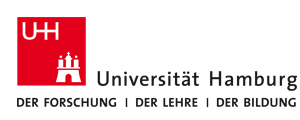 |
MIN-Fakultät
Fachbereich Informatik
TAMS |
 |
Phd Thesis
German Title:"Intelligente Kamerasysteme im Anwendungsfeld mobiler Service-Roboter"
(English: Smart Camera Systems in the Application Field
of Mobile Service Robots)
Abstract
Perceiving the working environment is a central challenge for mobile robots.
In the near future, camera systems could contribute significantly to the perception capabilities of artificial intelligent systems.
However, the processing of video data is very computationally intensive, especially for high-resolution cameras. On mobile platforms, this issue is critical due to the inherent constraints of
size, weight and power consumption.
As smart cameras offer lightweight combinations of sensing and processing infrastructure, executing parts of the image processing functions on these systems can yield improvements regarding those challenges.% Due to their integrated processing units, can be directly carried out on the camera system.
This thesis presents an integration concept for smart cameras into a robot system and evaluates their application in typical image processing tasks in the field of robotics. Particularly, object detection and face localization are analyzed. Depending on the task and the available processing capabilities, a variable number of image processing subtasks can be carried out on the smart camera. Among other settings, this allows optimizing the pipeline towards either high image processing performance, low utilization of the robot's host PC or low network utilization.
The evaluation shown in this thesis focuses on the performance of the Basler eXcite smart camera.
Although this camera's processing power is lower than that of desktop PCs, an appropriate setup of processing functions can result in significantly reduced overall latencies. The employed software's modular architecture also allows offloading image processing functions to further stationary PC-systems in the robot's working environment. For the task of object detection, it is shown that parallel processing can vastly increase the performance, especially when huge databases of objects are used.
Further tests compare the efficiency of the implemented software architecture to the state-of-the-art robotics framework ROS in terms of overhead, that is induced by exchanging data between different software modules.
Results confirm a significantly improved behavior in terms of latency and CPU-load. % that the proposed method generates much less latency and CPU-load compared to ROS.
This thesis also considers future types of smart cameras using multiprocessor or GPU architectures in order to provide improved performance. %It can be shown that these
As part of this investigation, the developed software is extended to support OpenCL-based image processing and then used to validate the advantages of parallel architectures.
Phd Defense
passed, 09.12.2013



